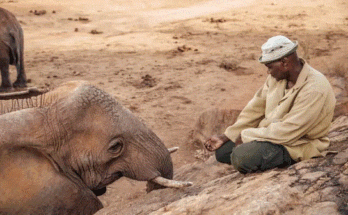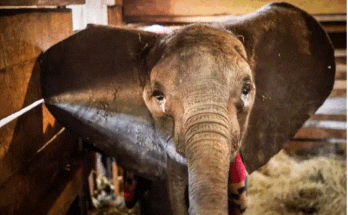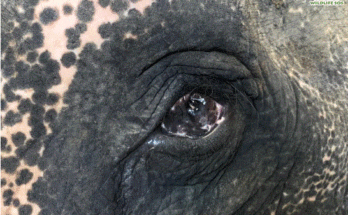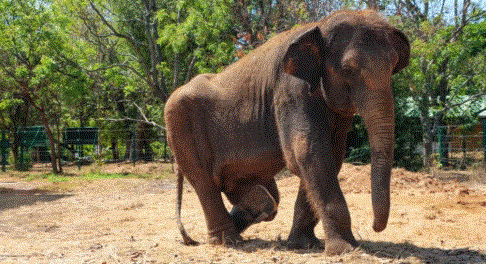
In the heart of a lush jungle, where the leaves shimmer with sunlight and time slows to the rhythm of the wild, lives an elephant unlike any other. His name is Kavi—a name meaning “poet” in ancient tongue—and though he cannot speak with words, his life tells a story so powerful it moves even the hardest hearts to tears.
Kavi walks with a limp.
Where once stood four mighty legs, now only three remain. His right front leg is missing from just above the knee—a raw, cruel scar left behind by a poacher’s snare. He was barely a calf when it happened, wandering too far from his mother in search of water. The trap—a steel coil hidden in the undergrowth—snapped around his leg, slicing through muscle and bone. His cries echoed through the forest for hours, but no help came. By the time rangers found him, he was barely breathing, his tiny body in shock, and his future hanging by a thread.
But fate had not given up on him.
He was airlifted to a sanctuary—one that specialized in orphaned and injured wildlife. There, among other broken survivors, he began the long road to healing. The veterinarians did what they could, amputating the damaged leg and fighting to save his life. Many feared he wouldn’t make it. Elephants, after all, are meant to roam, to walk, to run. How could one survive—let alone thrive—with only three legs?
And then, into Kavi’s life stepped someone who would change everything: a young man named Arun.
Arun wasn’t a vet, or a scientist. He was just a caretaker at the sanctuary—soft-spoken, patient, and often overlooked. But where others saw a broken animal, Arun saw something else entirely: a soul. And from the first moment he met Kavi, there was a spark—a silent understanding between two beings who had both endured more than they ever spoke aloud.
Every day, Arun would visit the young elephant. He didn’t approach with pity or sadness. He simply sat near him, speaking in gentle tones, offering fruits, singing songs in the local dialect. Sometimes he would just sit in silence, letting the breeze and the birdsong carry their unspoken bond. Slowly, Kavi began to respond. His trunk would curl toward Arun’s voice. His eyes, once clouded with pain, began to clear.
It wasn’t just healing. It was trust. It was friendship.

As Kavi grew older, he adapted in ways few thought possible. His body learned to balance, to walk, even to play with the other elephants. He couldn’t run like they did, but he had something stronger—resilience. And through every step, Arun was by his side, guiding, laughing, celebrating each small victory like it was a miracle.
Their bond deepened into something profound.
When Kavi was sad, it was Arun who lifted his spirits. When he was scared, it was Arun’s voice that calmed him. And when he stumbled—which he still often did—it was Arun who helped him up. Over time, Kavi began to lean on Arun—not just emotionally, but literally. When his legs grew tired, when the pain from old wounds flared up, he would rest his great weight gently against Arun’s body, careful not to hurt him, but fully trusting him to hold space for his weakness.
And Arun never let him down.
People began to take notice. Videos and photos of Kavi leaning his giant body against Arun’s shoulder spread across social media. In a world often full of conflict and cruelty, their friendship became a symbol of something purer—a reminder that love, in its truest form, doesn’t require perfection. It simply requires presence.
What touched people most wasn’t just Kavi’s survival—it was his trust. In a world that had taken so much from him, where humans had once brought pain and loss, he still chose to lean on one of them. Not because he had to. But because he wanted to.
And that, many said, was the miracle.
Because when an elephant with three legs chooses to love, chooses to trust again, it forces us to reflect on ourselves. If he can forgive the species that wounded him… if he can find joy again with only three legs and a thousand scars… then maybe we, too, can find our own way back from what has broken us.
Today, Kavi continues to live at the sanctuary. He is full-grown now—towering, wise, and calm. He often visits nearby schools with Arun to help teach children about kindness, wildlife conservation, and empathy. And when he’s tired, when the day winds down and the sky turns gold, he still leans on his best friend. Not just because he needs to—but because it’s his way of saying thank you.
Thank you for staying.
Thank you for believing.
Thank you for showing the world that friendship isn’t about how strong or perfect we are—but how deeply we care.
Kavi’s story is more than just an animal tale. It’s a testament to the power of connection. It shows us that healing doesn’t always come through medicine or time—it sometimes arrives in the form of gentle hands, soft voices, and the quiet promise that we don’t have to walk this life alone.
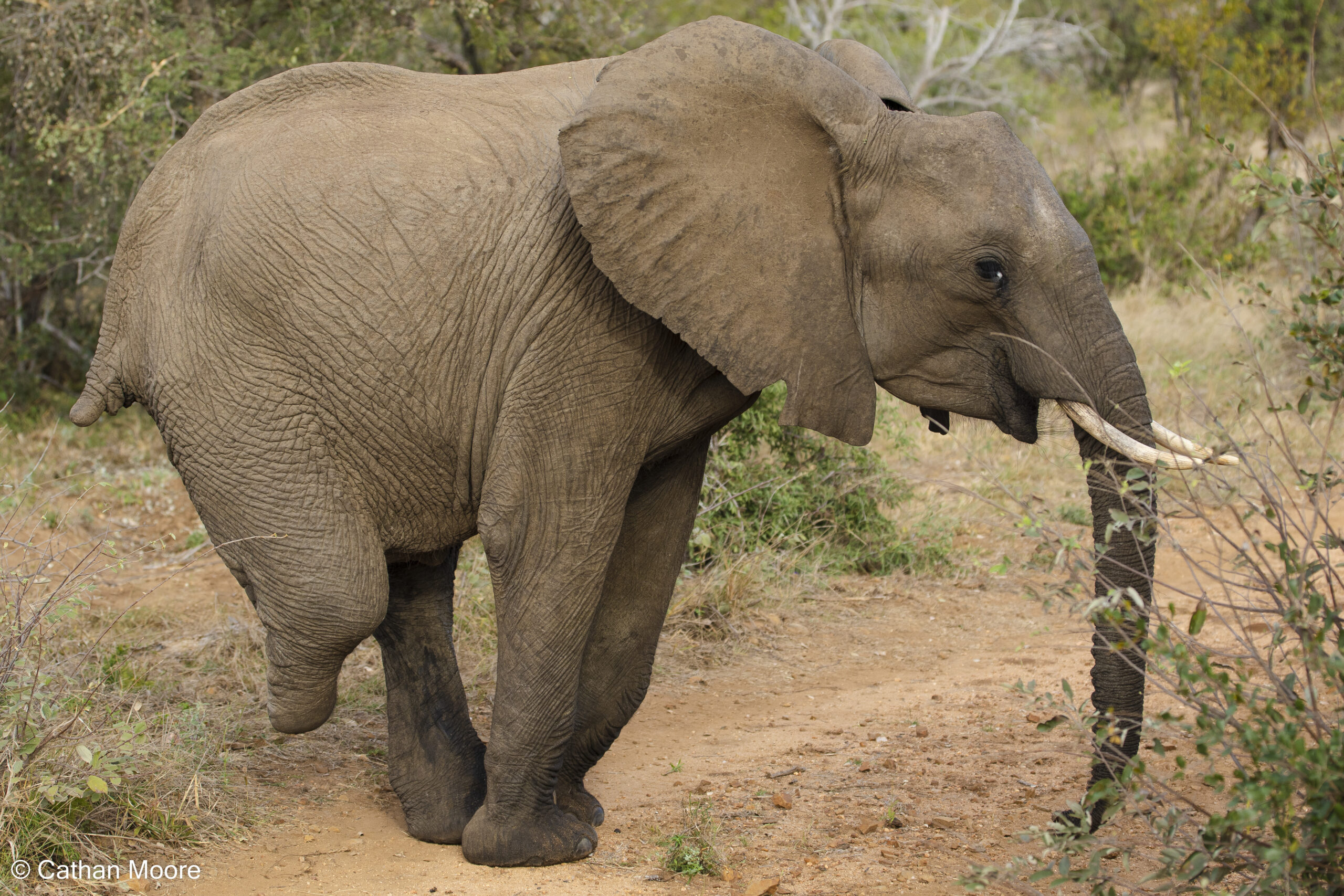
Because friendship—real friendship—can hold the weight of the world. Even when that weight is twelve thousand pounds and stands on only three legs. 🐘❤️🩹
And in a world often darkened by wounds both old and new, may we all find the kind of friendship that helps us stand tall again. Just like Kavi. Just like Arun. Just like the love that saved them both.
